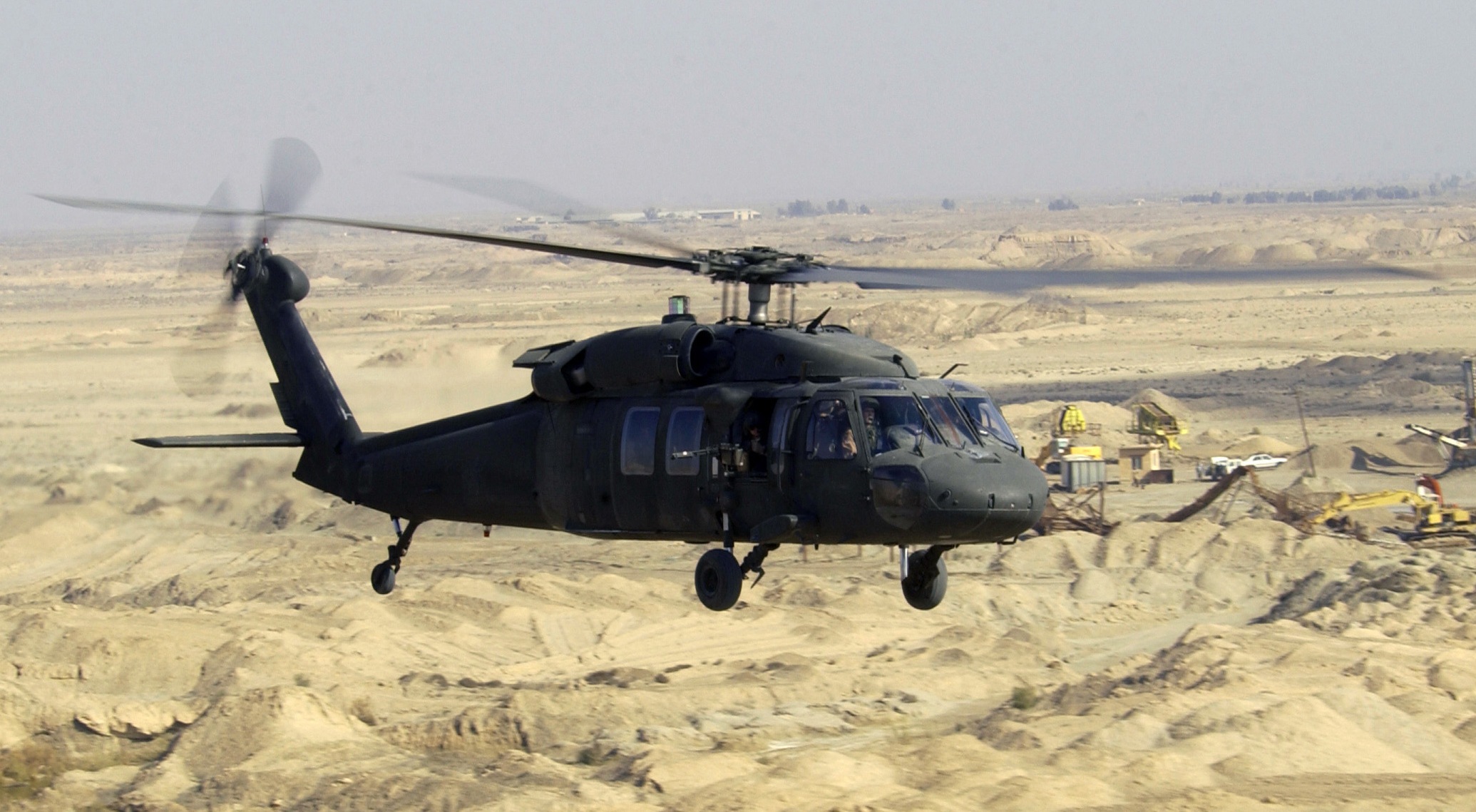UH 60 Helicopter: Advanced Avionics and Fight Systems
UH 60 Helicopter: Advanced Avionics and Fight Systems
Blog Article
The Influence of Lasting Practices on the Future of Aircraft Workflow and Emissions Reduction
As the air travel sector encounters boosting examination over its environmental effect, the adoption of lasting methods becomes an important path towards future aircraft operations and emissions decrease. Developments in sustainable air travel gas and innovations in hybrid propulsion innovations stand at the forefront of this transformation, appealing significant decreases in greenhouse gas discharges. The effective assimilation of these initiatives pivots on a range of variables, including regulatory frameworks and sector collaboration. The concern remains: exactly how will these advancing methods improve the dynamics of flight and add to a more lasting future?

Review of Sustainable Practices
Lasting methods in airplane procedures incorporate a series of methods targeted at lowering ecological influence while keeping functional effectiveness. These practices are crucial in the air travel sector's commitment to reducing its carbon impact and adhering to international environmental requirements. Key initiatives include enhancing trip paths to minimize gas consumption, enhancing maintenance protocols to guarantee airplane run at peak performance, and implementing advanced innovations such as winglets and lightweight products that improve aerodynamics.

Training and involving staff on sustainability techniques likewise play a vital duty, promoting a culture of environmental duty within companies. Generally, the integration of these lasting techniques not only helps minimize discharges however additionally enhances the long-term feasibility of the aviation sector, ensuring it meets the needs of both customers and regulative bodies while adding to global sustainability goals.
Cutting-edge Fuel Alternatives
Countless innovative fuel alternatives are becoming essential services to decrease the air travel market's reliance on standard fossil gas. Among these options, Sustainable Air travel Gas (SAFs) have gotten substantial attention as a result of their possible to lower lifecycle greenhouse gas discharges by up to 80% contrasted to standard jet fuels. SAFs are originated from different feedstocks, including waste oils, farming deposits, and also algae, making them a functional alternative for the sector.
Another promising option is hydrogen fuel, which, when made use of in fuel cells, creates just water vapor as a byproduct. This zero-emission potential presents a considerable opportunity for decarbonizing flight procedures, particularly for short-haul flights and regional aircraft. Additionally, electrical propulsion systems are being checked out, leveraging battery innovation to power airplane. While current battery capability limitations array and payload, ongoing advancements might soon render electrical flights viable for details applications - uh 60.
Finally, biofuels stemmed from biomass are being explored, providing a sustainable alternative that can be blended with typical gas. Collectively, these ingenious fuel alternatives stand for an important action towards accomplishing a lasting aeronautics ecological community, straightening with worldwide exhausts reduction targets and improving the industry's ecological stewardship.
Technical Improvements in Air Travel

Just how can technical advancements improve the future of aeronautics? The integration of innovative technologies is essential in transforming airplane procedures, boosting effectiveness, and minimizing discharges. Technologies such as electrical and hybrid propulsion systems are at the forefront, encouraging significant reductions resource in fuel consumption and greenhouse gas emissions. These systems take advantage of improvements in battery modern technology and energy monitoring, allowing airplane to run with a reduced ecological impact.
Furthermore, the application of innovative products, such as lightweight compounds, adds to boosted the rules of aerodynamics and gas effectiveness. Making use of expert system and device learning in trip procedures optimizes route preparation and lowers gas shed by making it possible for real-time modifications based upon weather and website traffic problems. Additionally, the development of autonomous and remotely piloted aircraft systems stands to reinvent freight and guest transport, potentially raising efficiency while decreasing human error.
In addition, lasting air travel technologies, including advanced air website traffic administration systems, can enhance operations and decrease blockage, resulting in lower exhausts throughout trip. These advancements collectively stand for a paradigm change in aviation, promising a future where sustainability and functional performance are linked, consequently supporting the sector's commitment to lowering its environmental influence.

Governing Structure and Compliance
Taking into account the expanding focus on ecological stewardship within the air travel industry, the regulative framework controling aircraft operations is evolving to advertise lasting methods. Regulatory bodies, such as the International Civil Air Travel Company (ICAO) and different nationwide aviation authorities, are introducing rigorous guidelines aimed at lowering discharges and improving functional efficiency.
These guidelines often consist of the adoption of Lasting Aeronautics Gas (SAF), which has actually been acknowledged as a key part in attaining reduced carbon impacts. Compliance with these regulations calls for airline companies to carry out sophisticated innovations and operational practices, such as optimized flight courses and improved air website traffic administration, to lessen fuel consumption.
In addition, the enforcement of emissions trading systems and carbon offsetting initiatives is ending up being significantly prevalent, engaging airline companies to check and report their exhausts accurately. Non-compliance can result in substantial charges, therefore pressing drivers to focus on sustainability in their service designs.
Inevitably, the advancing regulatory landscape not only drives advancement and financial investment in environment-friendly technologies but also fosters a society of liability within the aeronautics sector. As these frameworks remain to establish, the emphasis on sustainable practices will be essential to accomplishing the published here industry's lasting environmental goals.
Future Patterns in Airplane Operations
As the air travel sector adapts to a significantly stringent regulatory environment, future patterns in airplane procedures are readied to concentrate on cutting-edge services that better enhance sustainability and performance - uh 60. Trick growths will likely include the fostering of advanced air website traffic monitoring systems, which use real-time data and artificial intelligence to maximize flight paths, lowering fuel consumption and exhausts
One more considerable trend is the raised integration of sustainable air travel fuels (SAFs) These choices to traditional jet fuel, stemmed from sustainable sources, can substantially reduce lifecycle greenhouse gas discharges. The industry's commitment to SAFs will likely accelerate as airlines team up with fuel manufacturers to make certain schedule and cost-effectiveness.
Additionally, the press towards electrification and crossbreed propulsion systems is acquiring my sources energy. Arising aircraft designs will include these innovations, offering quieter and more reliable procedures, particularly for short-haul trips.
Conclusion
The adoption of sustainable aviation gas, paired with developments in electric and hybrid propulsion systems, is important for reducing lifecycle greenhouse gas emissions. Maximizing flight courses and welcoming cutting-edge modern technologies contribute to a quieter and a lot more ecologically pleasant air travel field.
Innovations in sustainable aeronautics gas and innovations in hybrid propulsion modern technologies stand at the center of this transformation, encouraging substantial reductions in greenhouse gas emissions.Numerous ingenious fuel alternatives are arising as crucial options to reduce the aviation sector's reliance on traditional fossil fuels - uh 60. Among these options, Lasting Aviation Gas (SAFs) have obtained considerable focus due to their prospective to lower lifecycle greenhouse gas exhausts by up to 80% contrasted to standard jet gas.Another substantial pattern is the boosted integration of sustainable air travel fuels (SAFs) The fostering of sustainable aeronautics gas, paired with innovations in hybrid and electrical propulsion systems, is vital for reducing lifecycle greenhouse gas exhausts
Report this page